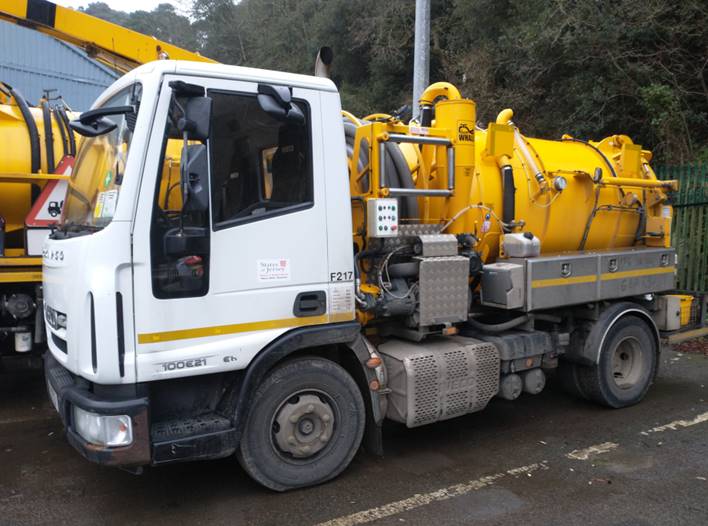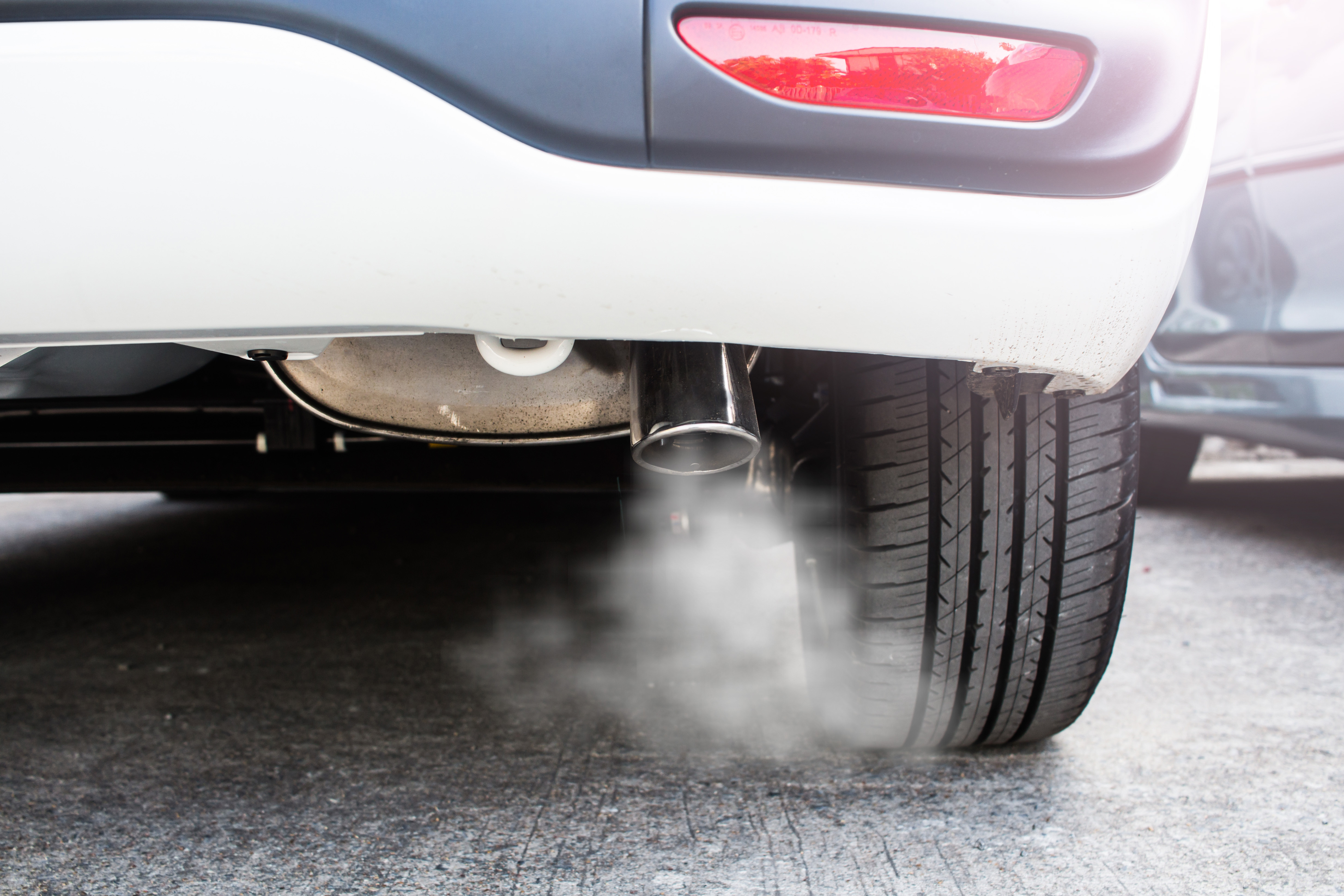


The next Government will have to find around £250m of extra funding – likely through a package of new taxes – if Jersey is going to meet its "aggressive" net-zero-emissions target by 2030.
This will involve the next Assembly of politicians having to make an “enormous funding decision” that is likely to require new charges, such as a tourist tax, a levy on private parking, and a new road-user-tax, possibly based on vehicle mileage.
These options were revealed by civil servants at a Scrutiny Panel hearing on Tuesday, which quizzed Infrastructure Minister Kevin Lewis and his officers on relevant aspects of the next Government Plan, which covers the next four years.
One element that features in the 2022-2025 plan, and is set to feature prominently in subsequent editions, is Jersey’s aim to achieve carbon neutrality in eight years.
Guernsey and the Isle of Man have both followed the UK in setting a target of carbon neutrality by 2050, two decades after Jersey’s “aggressive” target.
Since the States declared a ‘climate emergency’ in May 2019, the Government has produced a Carbon Neutral Strategy and established a Climate Change Citizens’ Assembly, which published its recommendations in June.
The next stage is for Ministers to publish a ‘Carbon Neutral Roadmap’, which will set out exactly how net-zero-emissions will be achieved.

Pictured: A new road-user charge, possibly based on mileage, is being considered by policy-makers.
Although this will be published by the end of the year, politicians responsible for scrutinising the Government's environmental plans received a small taster of its recommendations this week.
Louise Magris, Director for Environmental Policy, said: “The Carbon Neutral Roadmap will bring forward the costed policies and they will attach a value to the package of policies.
“However, it is not unreasonable to use the work we did as part of the Carbon Neutral Strategy [published in December 2019] to provide a proxy for the size of costs that we need to have an accelerated carbon reduction agenda by 2030.
“That was an evidence piece that formed part of the Carbon Neutral Strategy that the States voted on.
“The quantum of cost as direct cost to Government was the amount of money that would be needed to apply six of the major policies that had worked elsewhere.
“Those policies aren’t the ones that will necessarily come forward in the roadmap but they form a quantum of the type of policies that you would need for that level of carbon reduction.
“That was enumerated for Jersey at about £300m. There is £23m in the Climate Emergency Fund and potentially there are new measures that might bring in some money, although they won’t get us up to £300m.
“So, the reality is that to have an aggressive decarbonisation agenda in line with carbon neutrality, we are looking for a £250m-type of charge between now and 2030 as the first port of call.
Dr Magris said that a long-term financing strategy to meet that “macro-economic challenge” would be devised in the first phase of the Carbon Neutral Roadmap.
She added: “It is obviously an enormous funding decision that the States will need to ponder upon and take a vote in the next term of Government.
“Ultimately, at the moment there is not enough money to meet the high level of ambition that the Island and the States have signed up to. We have to meet that challenge head on.
“There are innovate ways to meet that money, as well as the more traditional options. The reality is carbon neutrality has a cost to it. But of course not being carbon neutral has a cost as well; there is a reputational cost to the island as well as a degeneration in the way we live, the air that we breathe and the environment that we enjoy.”

Pictured: The cost of running Infrastructure’s tanker service and pumping stations is going up due to wetter winters.
Asked what new charges might be on the table, including the potential return of an annual vehicle tax, she said: “The revenue generation policy board are looking at the potential revenue raising measures to be investigated.
“They have looked at an annual car charge, like the old days, but there is something slightly more sophisticated, which is a road-user charge.
“On balance, what is being proposed in the Government Plan is more of a road-user charge. You may own several cars, and some may be classic cars, but you can only drive one car at a time.
“So discussions were more focused on charging mechanisms that were around the amount of mileage that a person would cover, or use in some way, and the charge would be proportionate to that.
“It might connect into vehicle testing regimes, which would assess the amount of mileage that a vehicle has used.
“The idea of an ownership charge is not the favoured mechanism, and a congestion charge was not high up on the list.”

Pictured: Next year’s Government Plan proposes increasing Vehicle Emissions Duty by more than 70% for higher polluting vehicles.
Giving more details of potential “levers” to raise revenue and modify change, Dr Magris said: “Initially, investigations are around a road-user charge to plug the gap in lost revenue [from falling fuel tax due to more electric and hybrid cars] and add to the Climate Emergency Fund; a car parking charge review, both in public and private car parking spaces; the Vehicle Emissions Duty; a modest tourist tax and a commercial waste charge.
“Those are the ones that are being considered to work up policy proposals for the States Assembly to consider, but it is really early-stage work.”
The panel also heard that climate change was already adding to the costs of Government: Infrastructure is asking for an extra £250,000 in the next Government Plan to cover increased costs in its pumping stations and tanker service.
This is mostly due to extra demand during increasingly wet winters, which is attributable to climate change.
After the hearing, Panel Chair Constable Mike Jackson commented: “The panel remain skeptical regarding some areas of funding and the future funding for the environment and infrastructure remits.
"A vast amount of funding has been requested by these departments and the public must see value for money.
"The Panel will continue to evaluate and question the use of taxpayers’ money in these areas.”
Comments
Comments on this story express the views of the commentator only, not Bailiwick Publishing. We are unable to guarantee the accuracy of any of those comments.